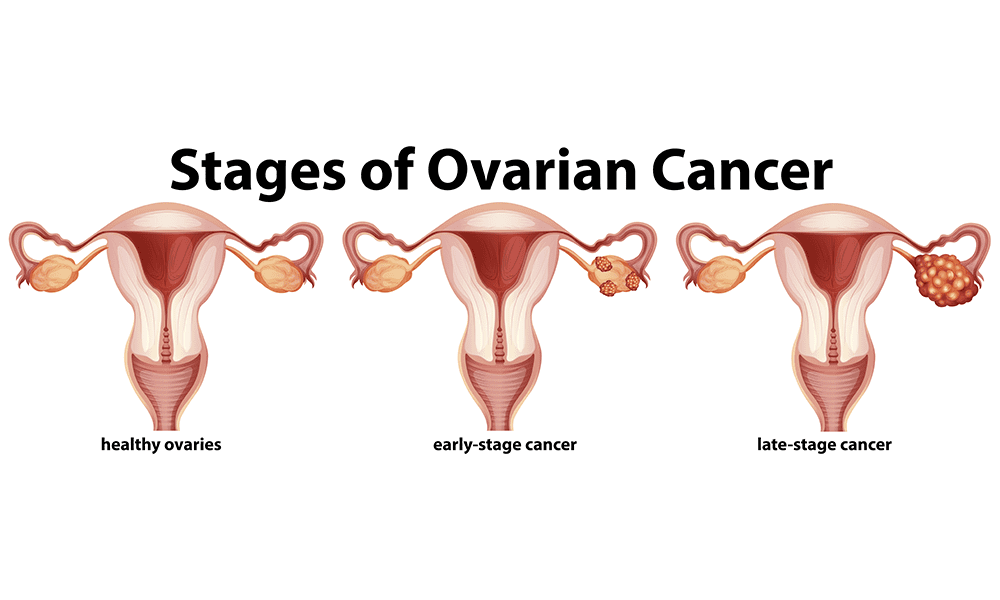
Ovarian Cancer Screening

Spoiler alert: There is no screening for ovarian cancer.
It is understandable that one would expect screening to exist. Ovarian cancer is deadly, killing over 14,000 women a year in the US. There should be a screening protocol, something analogous to mammograms for breast cancer or colonoscopy for colon cancer. Yet after decades of research, we are only a little closer to finding such a test.
What about CA-125 testing? I read on the internet that every woman should ask for this.
No, no and no. CA-125 is a very poor screening test for ovarian cancer. The goal of any screening test is that it detects cancer early enough to make a difference in survivability, but CA-125 is normal in 40% of early ovarian cancers, giving a false sense of reassurance. Just as important, it is abnormal in many women without cancer, leading to unnecessary anxiety and possibly unnecessary surgery.
Is CA-125 good for anything?
Well, yes. If a woman has a suspicious mass, especially if she has gone through menopause, a gynecologist may order a CA-125 and if elevated, will send the patient to an oncologist. Even in this scenario, there are better tests available such as the OVA1 or ROMA tests, which incorporate CA-125 with some other markers.
CA-125 is also used by gynecologic oncologists once a woman has a known ovarian cancer for surveillance. If it starts trending up after the cancer is treated, a oncologist may do further testing earlier than planned.
I heard on the Ellen Show that women should ask for an ultrasound at their annual exams, as this will detect early ovarian cancer.
This is simply wrong. With the exception of women who are very high risk, such as BRCA carriers or women who have a first degree relative with ovarian cancer, this is not effective screening.
To drive home this point, researchers at the University of Kentucky looked at 46,000 women over 30 years who had annual pelvic ultrasounds. If there was a suspicious cyst or mass, these women had a CA-125 and if there was concern for ovarian cancer, they had surgery to remove the ovary in question. Approximately 700 women underwent surgery and 109 had actual ovarian cancer.
There are lots of ways to interpret this, but to me the bottom line is this: almost 50,000 women had yearly ultrasounds and the researchers only found a little over a hundred ovarian cancers. Even more significantly, almost 600 women underwent unnecessary surgery.
Ultrasounds do not pick up early ovarian cancer for several reason.
- Ovarian cysts are not precursors for ovarian cancer. At least 25% of women under 50 will be diagnosed with an ovarian cyst and the vast majority of the time, this will be a "simple" cyst--just a cyst filled with fluid or blood. These simple cysts do not become cancer. Let me say this again: ovarian cysts almost never turn cancerous. Even if they are very large and hurt--and believe me, they can hurt--they do not become cancer. I have removed cysts as large as basketballs, and they have been benign.
- Ovarian cancer begins in the end of the fallopian tube. What??? Yes, this is a hard concept to wrap one's brain around. Unfortunately, these changes in the fallopian tube are not visible on ultrasound or even CT scan.
- Because of this new knowledge, gynecologists will now remove the end of the fallopian tube during sterilization and we will take out the whole fallopian tube during a hysterectomy. This is a big change from how things were done even ten years ago. (Side note: We have never actually "tied" tubes. Maybe cut or burned or put a clip on tubes, but no cute little knots.)
If I have an ovarian cyst and pain, shouldn't I have surgery? My mom had cysts and she had to have several surgeries for these.
In the vast majority of cases, cysts will go away without surgery. A few decades ago, we did not have the precise imaging that we have now and we simply did not know any better. Doctor's erred on the side of caution and removed cysts or whole ovaries. That is no longer the standard of care. Thank God for progress.
I am not a pessimist. I am confident that someday I will be writing about an amazing new test for ovarian cancer that actually saves lives. But for now, I will appreciate the fact that we are making progress towards this goal and doing less and less to harm healthy women.
You Might Also Enjoy...


Beyond the Mammogram: 5 Ways to Be Proactive About Your Breast Health

Signs You're Going Through Perimenopause

My Period Keeps Getting Heavier — Should I Be Worried?

Why You Shouldn't Let Embarrassment Stop You From Getting Help for Vulvar Itching

